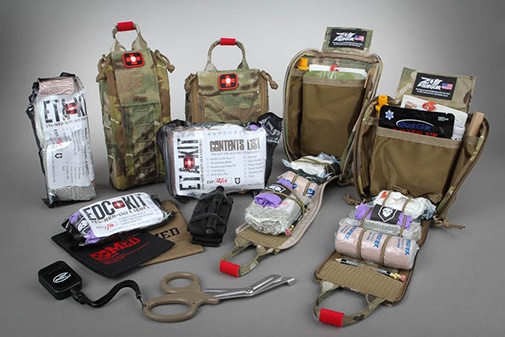The wildfires that have devastated our country have reminded us how important it is to be prepared for an emergency. Our thoughts are with all the people who have been affected by the fires and the brave people fighting them.
When emergencies happen, sometimes we’re able to stay at home. Sometimes we need to move and fast. If you don’t have an emergency survival kit or a getaway kit, this is a timely reminder to get one.
There are many ready-made kits available to buy online and in stores, but it pays to review what’s in the kits to make sure it covers everything you need. Alternatively, you can make up your own kit. Here’s a quick guide to the essentials of a survival kit.
1. Talk to your family and make a plan
The single most important part of any survival plan starts with having a conversation with your family. This simply means deciding where you’ll meet if you can’t go home and what you’ll need to make it through. Decide where you’ll store your kit, make sure it’s accessible in a hurry and that it can be retrieved in the dark.
2. What’s in a basic survival kit?
Backpacks are ideal for survival kits. They’re easy to carry and can hold a good amount of weight. Depending on the size of your family, you may want to prepare several packs. Here’s what you’ll need to carry.
- 3 days of water, which is about 10 litres per person. Depending on your water supply, you may need sterilising tablets.
- 3 days of food per person. Pack long-lasting packaged food that can be eaten without needing to be cooked. Don’t forget the can opener.
- Toilet facilities, e.g. toilet paper, a plastic bucket and hand sanitiser.
- Masks and gloves.
- A torch, radio, spare batteries and an emergency phone charger.
- Cash.
- A change of clothes, raincoat and hat.
- A first aid kit, including any prescription medicine you take.
- Anything else you may need for small children and pets.
Beyond this you’ll have to decide what else you’ll need to get through and what other resources you’ll have at your disposal. For example, if you have a car, you could consider taking more supplies, but make sure it can be loaded quickly.
Check your kit every 12 months. Change the water, make sure the food hasn’t expired and make any adjustments to your supplies if your circumstances have changed. We hope this is one move you’ll never need to do, but it pays to be prepared. Stay safe.
